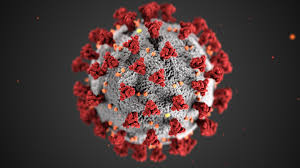COVID-19 Daily Update: 3.19.2020

WISCONSIN COUNTY COURTROOM CLOSURES
As we see the continued spread of the COVID-19 virus throughout the state, we have seen our state and local public health officials mandate stricter measures on public gatherings. Just yesterday, DHS prohibited gatherings of 10 or more people through DHS Emergency Order #5. Although county facilities are exempt from the DHS Order, many counties are considering whether to close some or all county departments and facilities. Questions have arisen surrounding whether a county has the statutory authority to close its departments and facilities to the public. Our general counsel previously provided guidance on a county’s emergency powers, which can be found here.
Read the full memo from WCA Executive Director Mark D. O’Connell on Wisconsin courtroom closures here.
FEMA PROCESS FOR PUBLIC ASSISTANCE FOR STATES, LOCAL GOVERNMENTS AND ELIGIBLE NONPROFITS
NACo has shared with us the FEMA process for public assistance for states, local governments and eligible nonprofits. In addition, on Thursday, March 19, 2020, WCA staff participated in a NACo briefing, which included an update from FEMA staff.
Below is a direct response from FEMA for NACo members:
“The Administration continues to place its full weight and resources behind the response to COVID-19. As you reference in your email, FEMA currently has over $500 million in available balances in the Disaster Relief Fund (DRF) Base to support all 56 States and Territories for COVID-19 response efforts, including for direct Federal assistance, temporary facilities, commodities, equipment, and emergency operation costs.
On March 13, 2020, the President declared the ongoing Coronavirus Disease 2019 (COVID-19) pandemic of sufficient severity and magnitude to warrant an emergency declaration for all states, tribes, territories, and the District of Columbia pursuant to section 501 (b) of the Robert T. Stafford Disaster Relief and Emergency Assistance Act, 42 U.S.C. 5121-5207 (the “Stafford Act”). State, Territorial, Tribal, local government entities and certain private non-profit (PNP) organizations are eligible to apply for Public Assistance. States, Tribal and Territorial governments do not need to request separate emergency declarations to receive FEMA assistance under this nationwide declaration. The emergency declaration will reimburse for eligible emergency protective measures taken to respond to the COVID-19 emergency at the direction or guidance of public health officials under Category B of FEMA’s Public Assistance program. I’m attaching a fact sheet for you to share with your group with additional guidance on the types of emergency protective measures that may be eligible under FEMA’s Public Assistance program. FEMA will not duplicate assistance provided by the U.S. Department of Health and Human Services (HHS), to include the Centers for Disease Control and Prevention (CDC), or other federal agencies.
On March 17th, the Administration submitted a request to Congressional Appropriators for additional fiscal year (FY) 2020 funding in the amount of $45.8 billion and the necessary authorities to address ongoing preparedness and response efforts. Included in this request is $2 billion in the Disaster Relief Fund Base Account to ensure there are resources available to support continued disaster operations.
We will continue to work with our state, local, tribal and territory partners to provide updates and additional information.”
Conclusion
Per NACo Executive Director Matt Chase, “So, to be clear at this point, counties and other local governments are covered by the President’s actions on March 13 as outlined above. Therefore, we do not need to wait for individual Governors to request a federal disaster declaration.”
FEMA COVID-19 Eligible Emergency Protective Measures Fact Sheet (3.19.20)
WISCONSIN ELECTIONS COMMISSION MEETING HELD REGARDING SPRING ELECTIONS
The Wisconsin Elections Commission (“WEC”) held a special meeting on March 18, 2020 to provide an update and further guidance for the upcoming Spring Election. Key items discussed by WEC include:
WEC is moving forward in anticipation of holding the Spring Election on April 7, 2020 as planned. WEC recognizes the importance of holding Wisconsin’s Spring Election. Unlike some states, more is at stake than just the presidential primary in Wisconsin. There are many ripple effects for other statutorily mandated dates and deadlines should the Spring Election be postponed (including office vacancy issues).
WEC asserts that it does not possess independent authority to modify statutorily mandated dates, deadlines, or processes. Additional election day procedural guidance from WEC will be forthcoming, but the current situation is too fluid to provide meaningful guidance at this time.
WEC secured an additional 500,000 absentee ballot envelopes that it will provide to counties and municipalities (likely at WEC’s cost).
Municipal poll worker lists are being exhausted. WEC highly encourages municipalities to seek out young people to volunteer. However, WEC did not specify whether training requirements would be relaxed given the short amount of time to appoint and train additional poll workers.
Other Spring Election Related News:
The Democratic National Committee and the Democratic Party of Wisconsin filed a lawsuit against WEC on March 18, 2020 requesting an extension and suspension of certain deadlines and procedures for both absentee voting and voter registration in light of social distancing and other disruptions caused by the novel coronavirus outbreak which plaintiffs assert would prevent Wisconsinites from voting in the primary election on April 7.
For additional questions, please contact Ben Conard of von Briesen at 414.287.1259.
PRIMER ON EXECUTIVE/AGENCY EMERGENCY ORDERS
We are all grappling with what seem to be hour-by-hour adjustments to best practices for conducting business with the spread of the Coronavirus Disease (“COVID-19”). This Legal Update from WCA General Counsel von Briesen & Roper, s.c. aims to delineate the line between government mandates and guidance in relation to Governor Evers’ Executive Orders and subsequent Department of Health Services (DHS) Emergency Orders.
